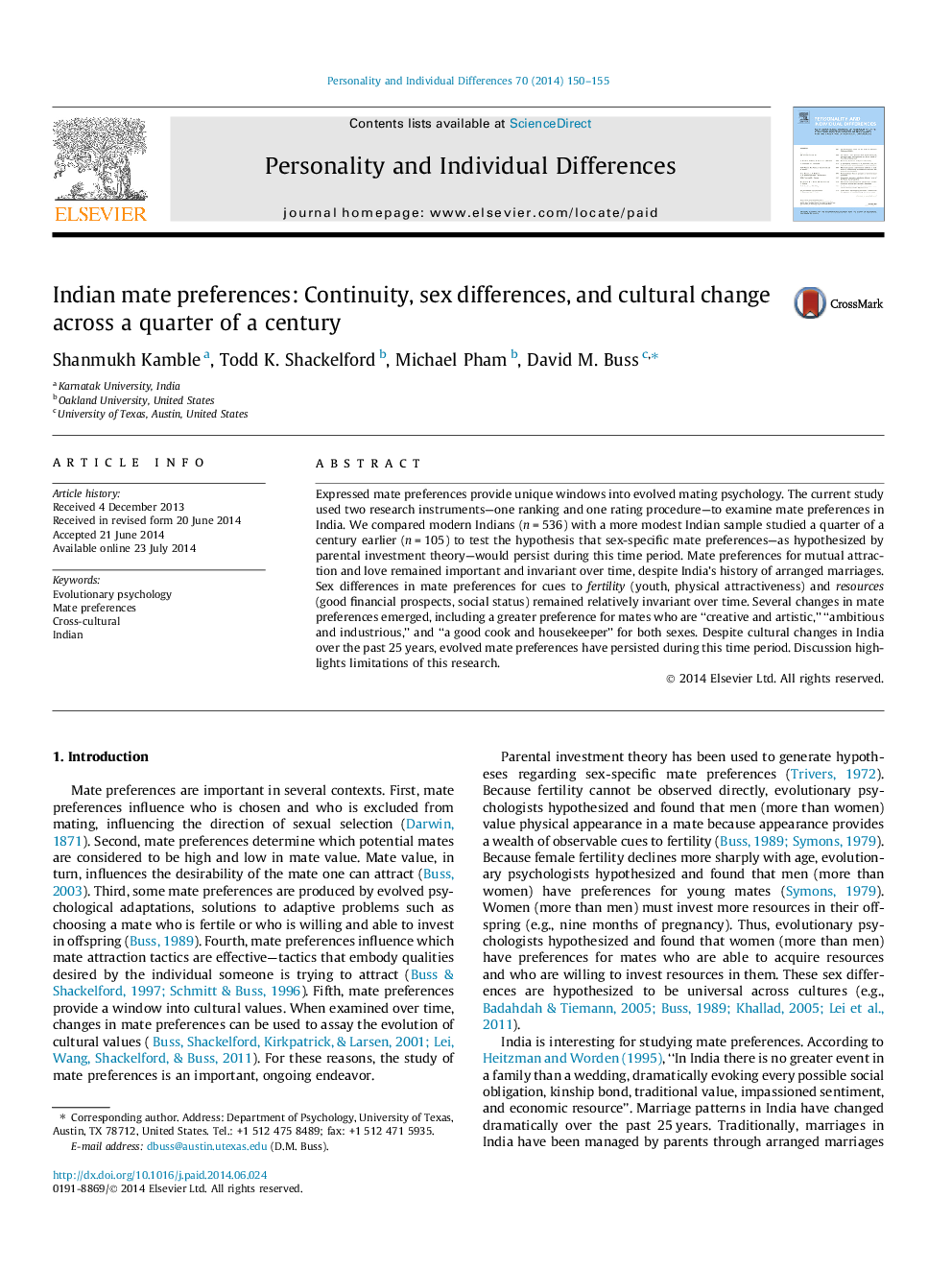| Article ID | Journal | Published Year | Pages | File Type |
|---|---|---|---|---|
| 890330 | Personality and Individual Differences | 2014 | 6 Pages |
•Evolutionary theory has produced hypotheses for sex-specific mate preferences.•We hypothesized the persistence of these preferences across 25 years among Indians.•We found support the hypothesis, despite cultural changes in India.
Expressed mate preferences provide unique windows into evolved mating psychology. The current study used two research instruments—one ranking and one rating procedure—to examine mate preferences in India. We compared modern Indians (n = 536) with a more modest Indian sample studied a quarter of a century earlier (n = 105) to test the hypothesis that sex-specific mate preferences—as hypothesized by parental investment theory—would persist during this time period. Mate preferences for mutual attraction and love remained important and invariant over time, despite India’s history of arranged marriages. Sex differences in mate preferences for cues to fertility (youth, physical attractiveness) and resources (good financial prospects, social status) remained relatively invariant over time. Several changes in mate preferences emerged, including a greater preference for mates who are “creative and artistic,” “ambitious and industrious,” and “a good cook and housekeeper” for both sexes. Despite cultural changes in India over the past 25 years, evolved mate preferences have persisted during this time period. Discussion highlights limitations of this research.
